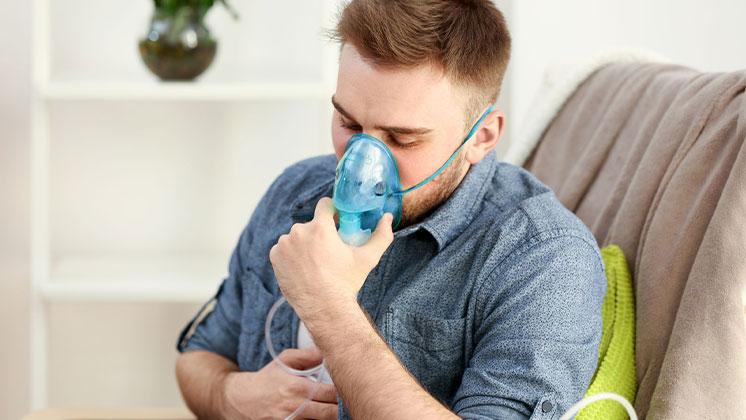What Types of Diseases Does Workers’ Compensation Cover in Virginia?

Virginia workers’ compensation doesn’t just cover on-the-job injuries – it can cover occupational diseases as well. Occupational diseases are chronic disorders that develop over time due to exposure to harmful conditions or substances in the workplace. Examples of workplace conditions that may cause disease include:
- exposure to hazardous materials
- repetitive motion
- emotional stress.
The most common occupational diseases are a result of prolonged exposure to specific workplace hazards such as fumes, bacteria, and mold. Such diseases may range from commonplace conditions like chronic obstructive pulmonary disease (COPD), to more severe and unusual ones such as mesothelioma, a type of cancer.
In general, workers’ compensation covers injuries and illnesses that arise out of and in the course of employment. Occupational diseases are one such category of illnesses that fall under this definition.
What Can Be Considered an Occupational Disease?
For an illness to be considered an occupational disease, it should meet these criteria:
- There is a direct link between the work conditions and the start of the disease.
- The disease naturally occurred as an outcome of the job, due to the nature of the work.
- The cause can be reasonably linked directly to employment.
- This is not a condition that an employee could have been significantly exposed to outside the workplace. It should also not be an issue related to the neck, back, or spinal column.
- The disease is related to the nature of the business, and is not outside the employer-employee relationship.
- The disease originated from a risk associated with the work, and it naturally resulted from that source, whether or not it was anticipated before it occurred.
Conditions like hearing loss and carpal tunnel syndrome are not classified as occupational diseases in Virginia. Instead, they are considered “ordinary diseases of life.” Certain circumstances may allow workers to claim compensation for such conditions.
Can an Ordinary Disease of Life Qualify as an Occupational Disease?
Yes, it is possible to get workers’ comp for an ordinary disease of life in Virginia, though claiming it comes with strict requisites.
According to Virginia Code §65.2-400, an “ordinary disease of life” is a disease that the public may be usually exposed to without relation to work. It does not fall under the “occupational disease” category. Hence, an employee who contracts an ordinary disease of life is not typically eligible for workers’ compensation.
However, if the employee can demonstrate that the disease is an occupational one rather than an ordinary one, they may be able to pursue workers’ comp.
Some ordinary diseases such as a variety of infections can be classified as occupational diseases if they meet these criteria:
- That the disease occurred during, and is a direct result of, the employment, and not caused by external factors
- That any of the following is true:
- The worker’s disease incidentally follows an occupational disease.
- The worker’s disease is a contagious or infectious condition contracted while working at a hospital, sanitarium, laboratory, or nursing home, OR while directly providing health care, OR while working as emergency rescue personnel or volunteer.
- The worker’s disease is typical in their line of work and caused by conditions that are distinctive or unique in such employment.
The Virginia workers’ comp system wants “clear and convincing evidence” of these criteria, not just a probability. If you’re hoping to prove that your ordinary disease is actually an occupational disease, it’s best to get the help of an experienced workers’ comp attorney.
Diseases Arising From Exposure to Toxic Chemicals
Occupational diseases are often the result of exposure to hazardous chemicals. These illnesses include:
Lung diseases
These may take the form of lung cancer, bronchitis, industrial asthma, or interstitial fibrosis.
Mesothelioma, a lethal type of cancer, is frequently considered an occupational disease. A significant number of employees in construction and industrial workplaces contract this disease due to asbestos exposure. Additionally, black lung disease is a prevalent issue among many coal miners.
Nervous system diseases
Chronic encephalopathy and peripheral polyneuropathy fall under this category.
Other associated diseases
Workers may also develop tuberculosis, hepatitis, Lyme disease, and possibly HIV. Exposure to toxic substances could also lead to bladder and liver cancer, as well as heart disease.
Diseases Caused by Repetitive Motion
Some work-related illnesses are not from exposure but rather from repetitive strain. For example, professions that involve a great deal of computer operation may lead to conditions like carpal tunnel syndrome. Work that entails repetitive manual tasks such as assembly or machine operation may likewise cause strain injuries.
Repetitive strain injuries, also referred to as repeated motion injuries, most commonly occur in the wrists. If identified early, these conditions may improve with adequate rest, rehabilitation, and certain medications. However, if these injuries are left undiagnosed, they may lead to enduring disability.
Repetitive strain injuries are typically not included in Virginia’s workers’ compensation coverage, with carpal tunnel syndrome being the sole exception.
Diseases Caused by Emotional Stress
In Virginia, workers’ compensation generally does not cover conditions linked to emotional stress, such as depression or indigestion. However, exceptions may sometimes apply if the stress originates from a singular traumatic event at work, such as witnessing a workplace accident or death.
Do note that this compensation only applies to jobs not typically exposed to such incidents. As an example, a police officer witnessing a shooting might not qualify for compensation for post-traumatic stress disorder (PTSD). Conversely, a nurse, teacher, or another worker exposed to this unusual situation may have a better chance of compensation.
Contact a Virginia Occupational Disease Attorney
Virginia occupational disease attorney Jaleh K. Slominski is highly knowledgeable in workers’ compensation and work injury law. With over two decades of experience, she has consistently helped injured workers in Virginia qualify for occupational disease benefits. Schedule a free consultation by calling us at (434) 384-9400 in Lynchburg or (540) 554-3762 in Roanoke.





